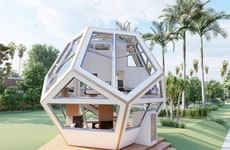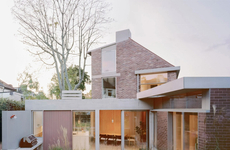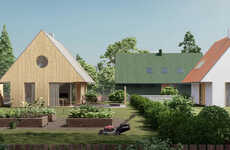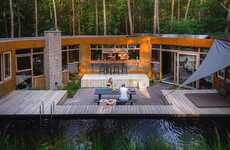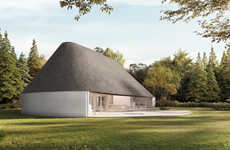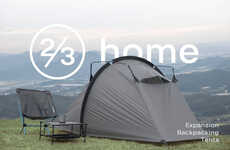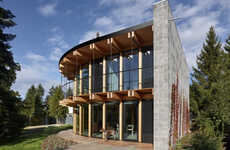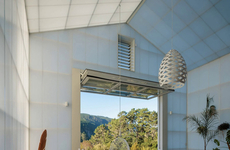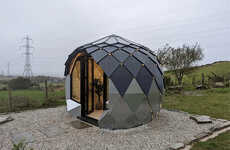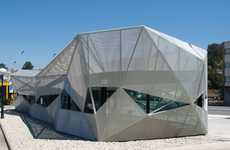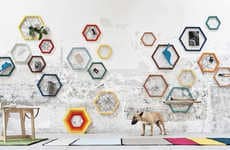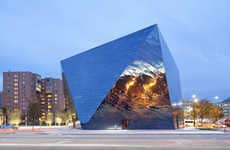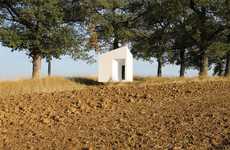
The Dynamic D*Haus Takes up to Eight Different Formations
Gil Cohen — November 6, 2012 — Art & Design
David Ben Grünberg and Daniel Woolfson of D*Haus Company have created the Dynamic D*Haus that adapts to different weather conditions.
It based its design on a mathematical formula, calculated by Henry Dudeney, that allows for an equilateral triangle to transform into a square. This house can actually fold into eight different configurations, moving along tracks located at the base of the building. The modular structure of this home makes for an exciting living arrangement with a different view every day; however, it also serves a practical purpose. The building folds in on itself to insulate inhabitants from cold temperatures and spreads wide to allow for more air flow during hot weather conditions.
Life is never boring in the shape-shifting Dynamic D*Haus.
It based its design on a mathematical formula, calculated by Henry Dudeney, that allows for an equilateral triangle to transform into a square. This house can actually fold into eight different configurations, moving along tracks located at the base of the building. The modular structure of this home makes for an exciting living arrangement with a different view every day; however, it also serves a practical purpose. The building folds in on itself to insulate inhabitants from cold temperatures and spreads wide to allow for more air flow during hot weather conditions.
Life is never boring in the shape-shifting Dynamic D*Haus.
Trend Themes
1. Modular Architecture - The Dynamic D*Haus demonstrates the potential of modular architecture to create adaptable living spaces that can respond to different weather conditions.
2. Flexible Building Designs - The ability of the Dynamic D*Haus to transform into eight different configurations showcases the potential of flexible building designs that can optimize comfort and energy efficiency.
3. Climate-responsive Homes - The Dynamic D*Haus exemplifies the rise of climate-responsive homes that can automatically adapt to varying weather conditions to enhance occupants' comfort and well-being.
Industry Implications
1. Architecture - The architecture industry can explore innovative ways to incorporate modular designs and flexible structures in building projects, like the Dynamic D*Haus, to create adaptable and sustainable living spaces.
2. Construction - The construction industry can embrace the concept of flexible building designs showcased by the Dynamic D*Haus to offer customizable solutions that cater to changing weather conditions and individual preferences.
3. Real Estate - Real estate professionals can leverage the concept of climate-responsive homes, as demonstrated by the Dynamic D*Haus, to provide eco-friendly and energy-efficient housing options to consumers.
4.7
Score
Popularity
Activity
Freshness

